The most shocking revelation in the documents that I received from the Mental Welfare Commission for Scotland is the copy of Form T3A completed by the second opinion doctor, Dr David Rooke of Stracathro Hospital, Brechin. He held a Microsoft Teams meeting with Dr Hannah Badial and an un-named staff nurse on 21st December 2021, and despite never having met me or examined me, certified that I was incapable of understanding the nature, purpose and likely effects of the treatment, that treatment is authorised by virtue of the Act (when the Compulsory Treatment Order was due to expire and did expire 5 days later), that he had consulted with the patient when he hadn't, and that the patient resists or objects to treatment but that is is necessary for alleviating serious suffering on the part of the patient.
I made a complaint about Dr David Rooke to the Mental Welfare Commission for Scotland. He definitely did not consult me, as he was obliged to do, before authorising ECT, and no computer was taken to my bedside. My memory of that period was not obliterated by the ECT, and the note that Dr Hannah Badial made of the Microsoft Teams meeting with him did not record my presence or any consultation with me. However, it seems that Dr Rooke has some problems with his memory. The response from the MWCS is below.
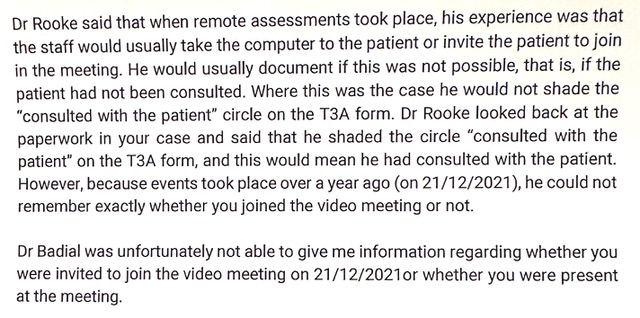
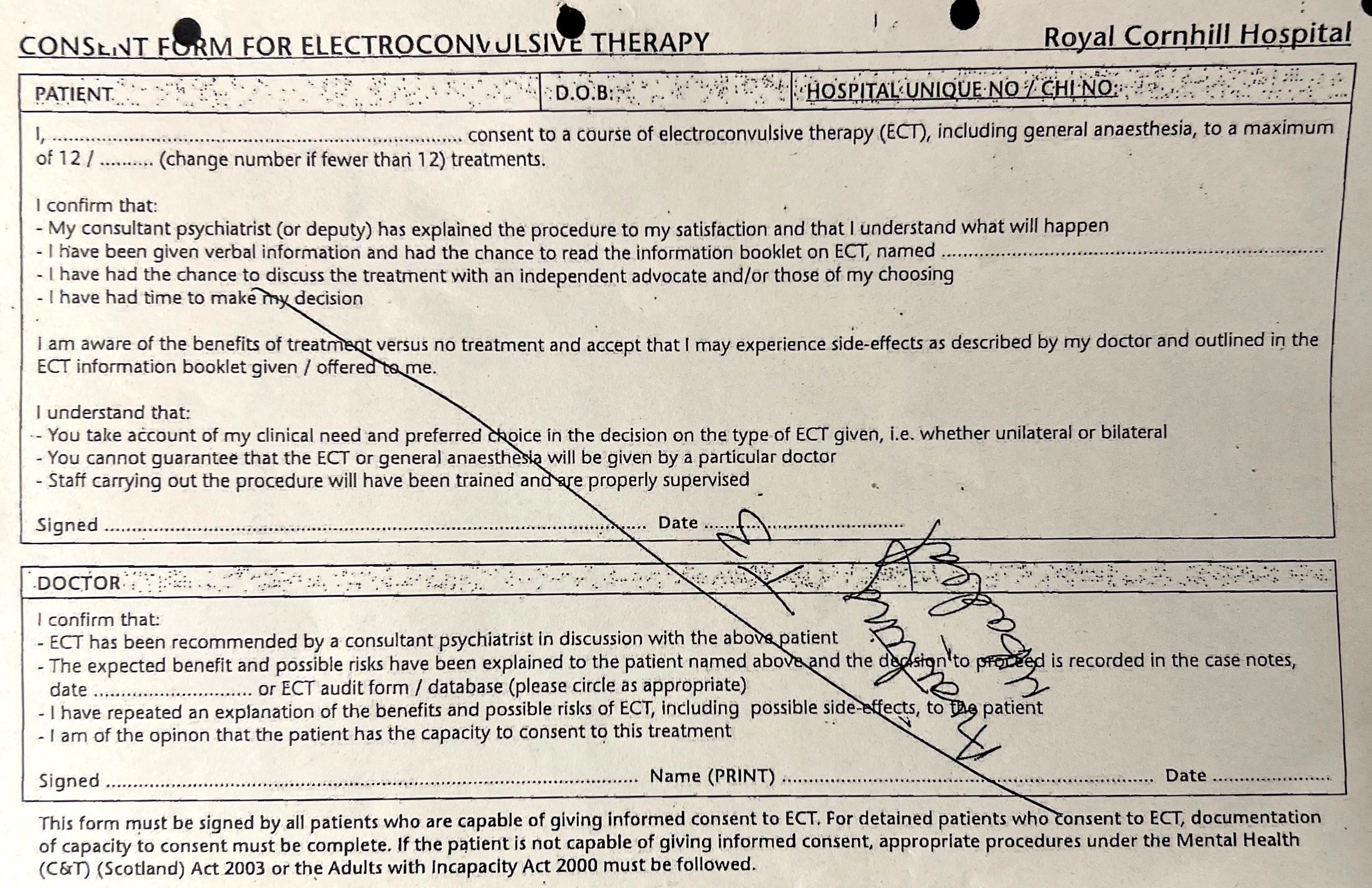
Dr Hannah Badial crossed through the consent form and wrote 'Awaiting T3'. The form (below) must be filled in by an independent medical practitioner appointed by the Mental Welfare Commission for Scotland. This was supposed to safeguard me by having a second opinion psychiatrist examine me. Note that the form states that ECT cannot be given when the patient is capable of consenting and refuses. I was certainly capable of consenting and did refuse as soon as I realised what was going to be done to me, but they decided that I lacked insight into my condition.
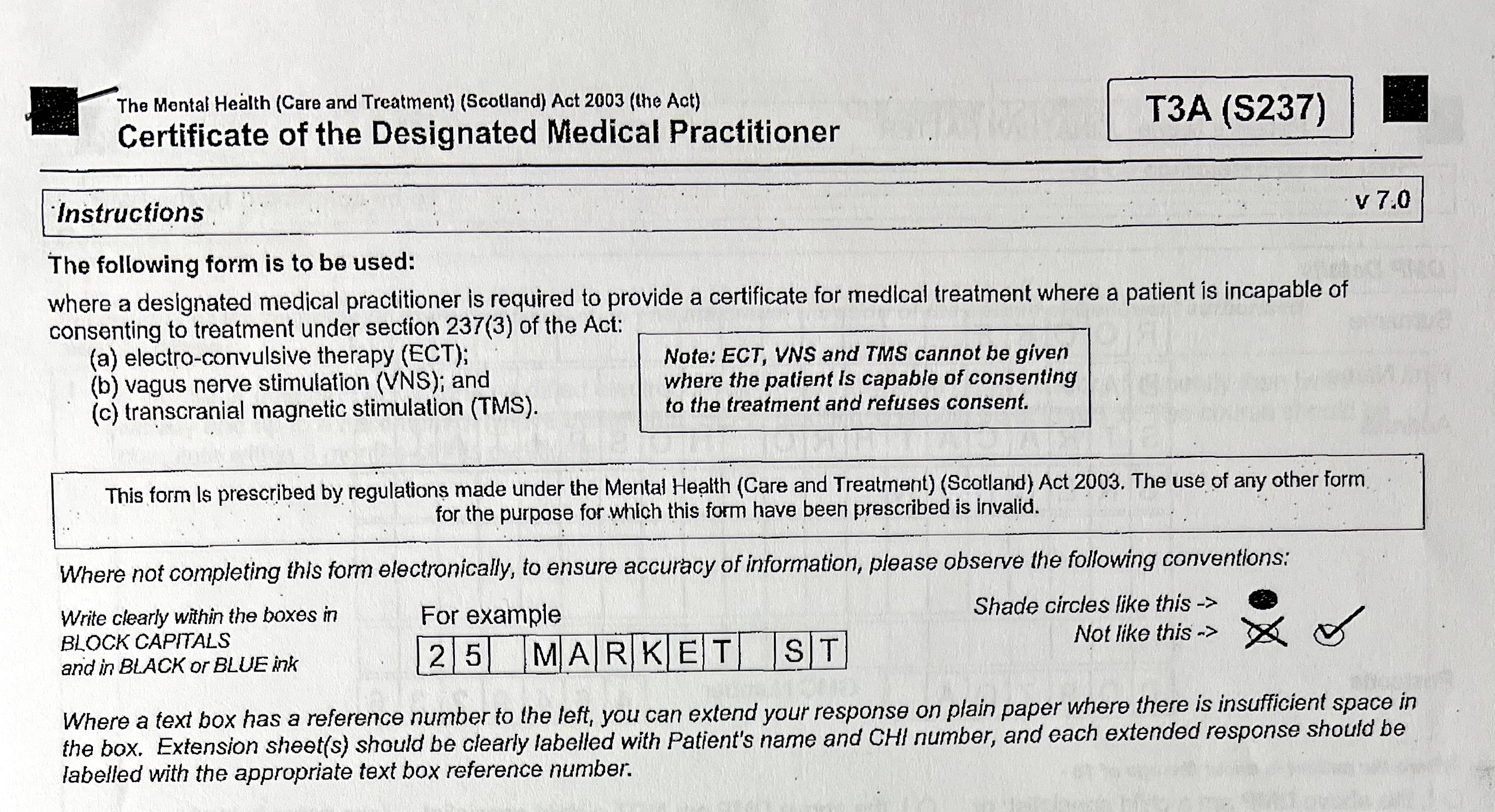
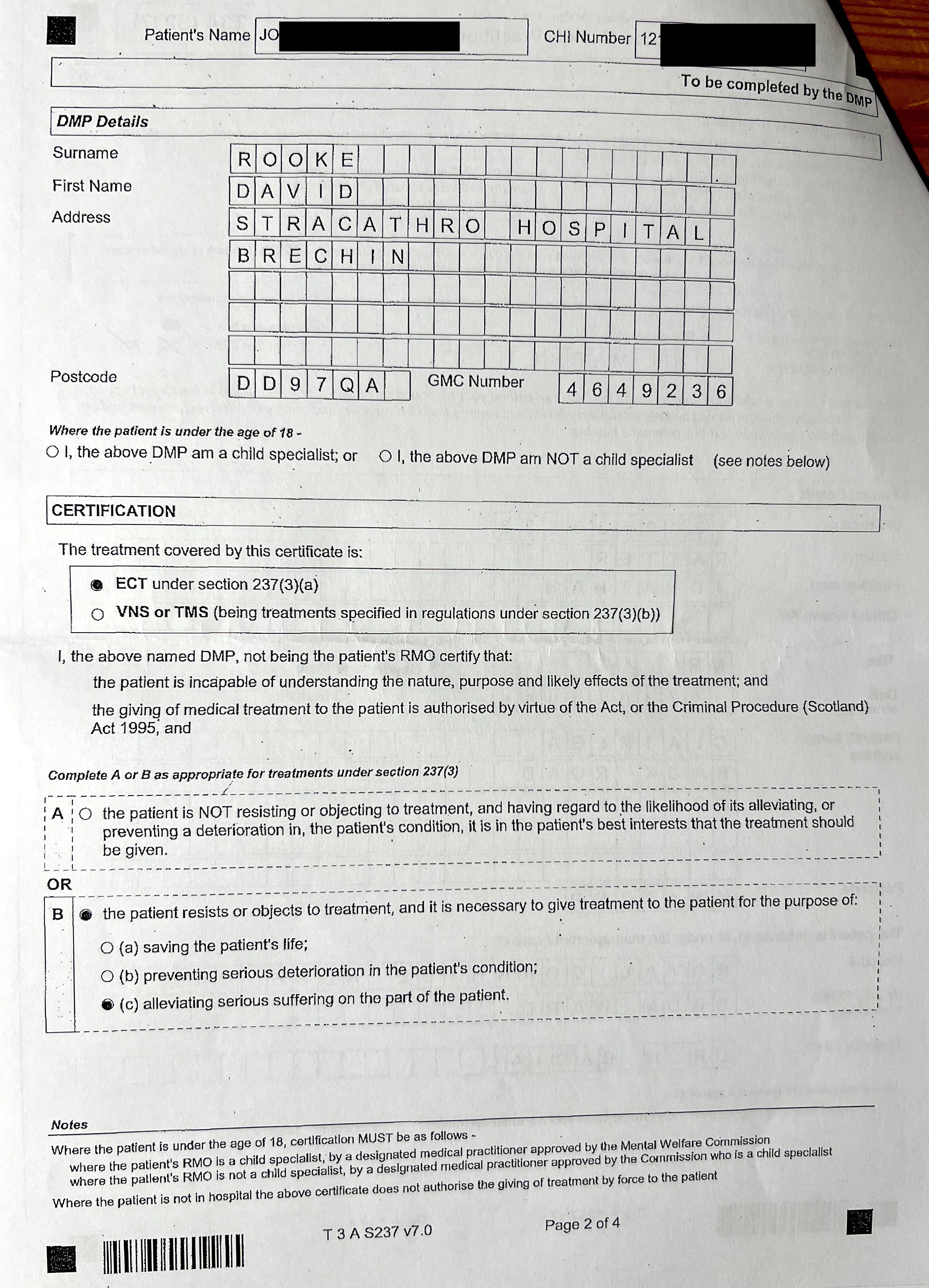
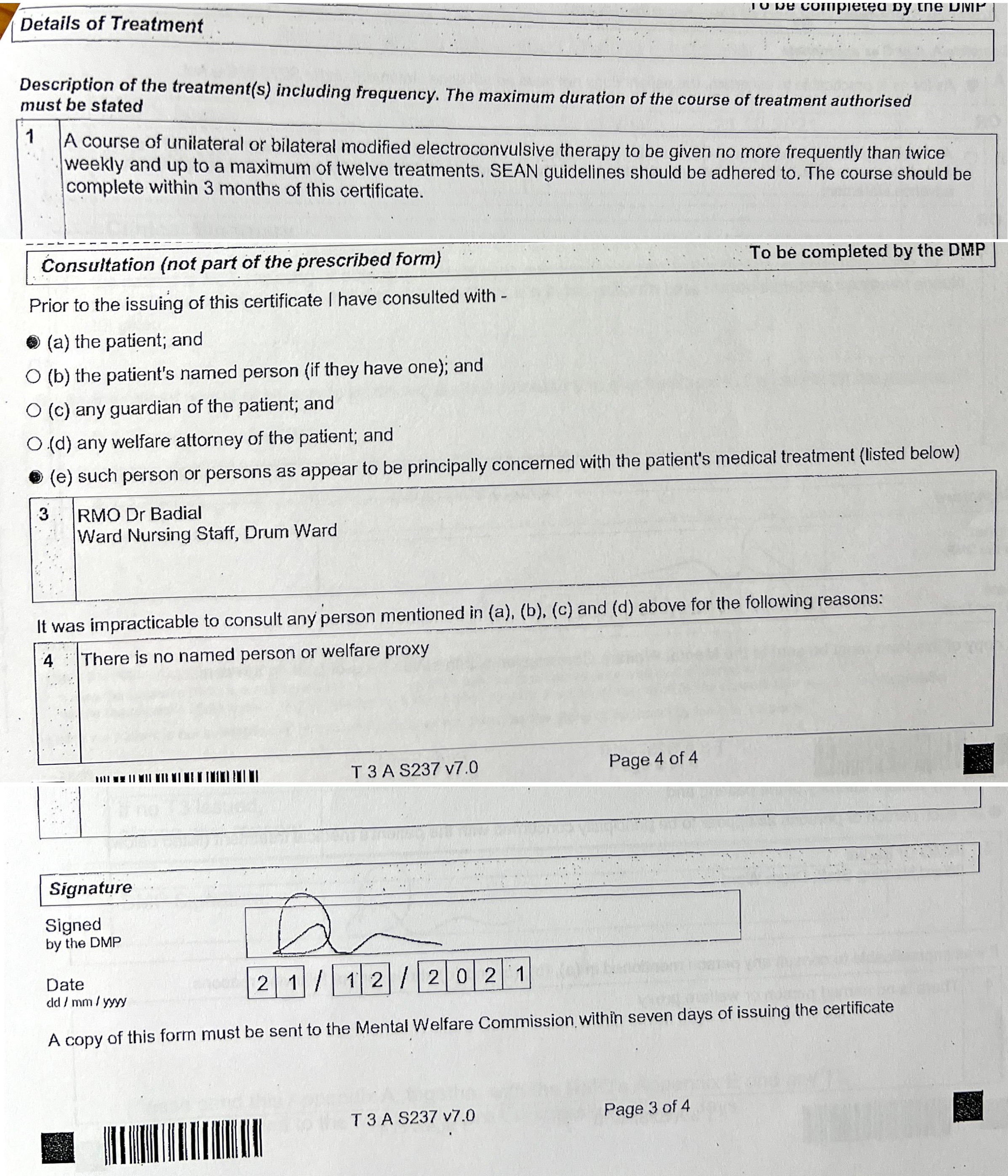
This is the Form T3A that Dr David Rooke filled in. He falsely stated that he had consulted me when he never met me or spoke to me.
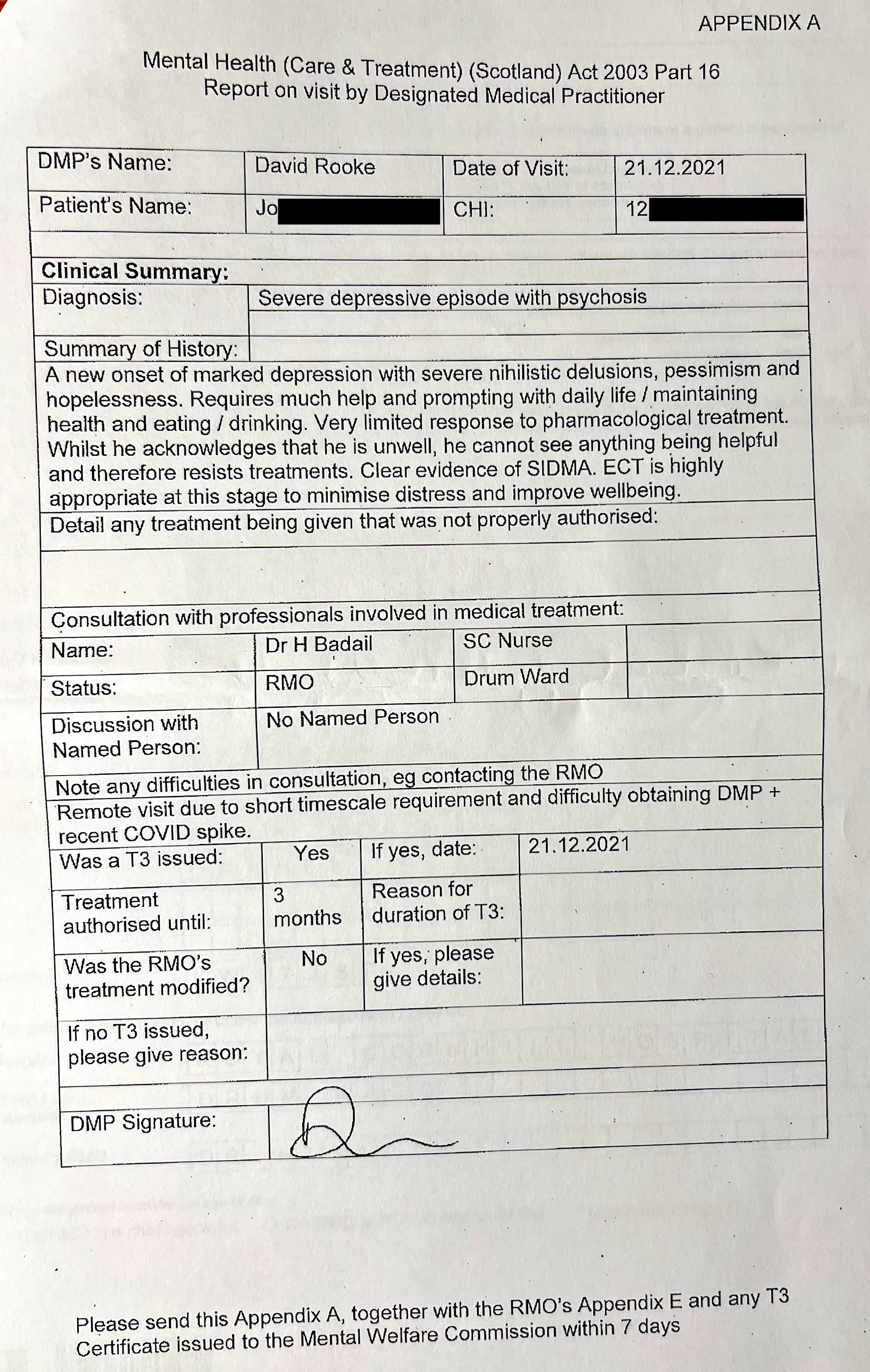
This is the Appendix to Form T3A that was filled in by Dr David Rooke. After seeing my notes I realise that they had been planning to give me ECT for some time but had been unable to find anyone to sign form T3A. He stated that I had 'Significantly Impaired Decision Making' despite never meeting me. If he had met me he would have found that I was perfectly capable of understanding the treatment and expressing my views and that under no circumstances would I have consented to ECT. He falsely stated that he had consulted me when he hadn't, which I regard as serious professional misconduct. Incredibly, he said that 'ECT is highly appropriate at this stage to minimise distress and improve wellbeing.' How can he have believed that forced ECT would minimise my distress when it turned out to be one of the most distressing experiences of my life, and one that still haunts me and gives me sleepless nights as I tense up at the memory. My emotions were deadened by the drugs that I was given, and it was only later that I began to process what had been done to me.
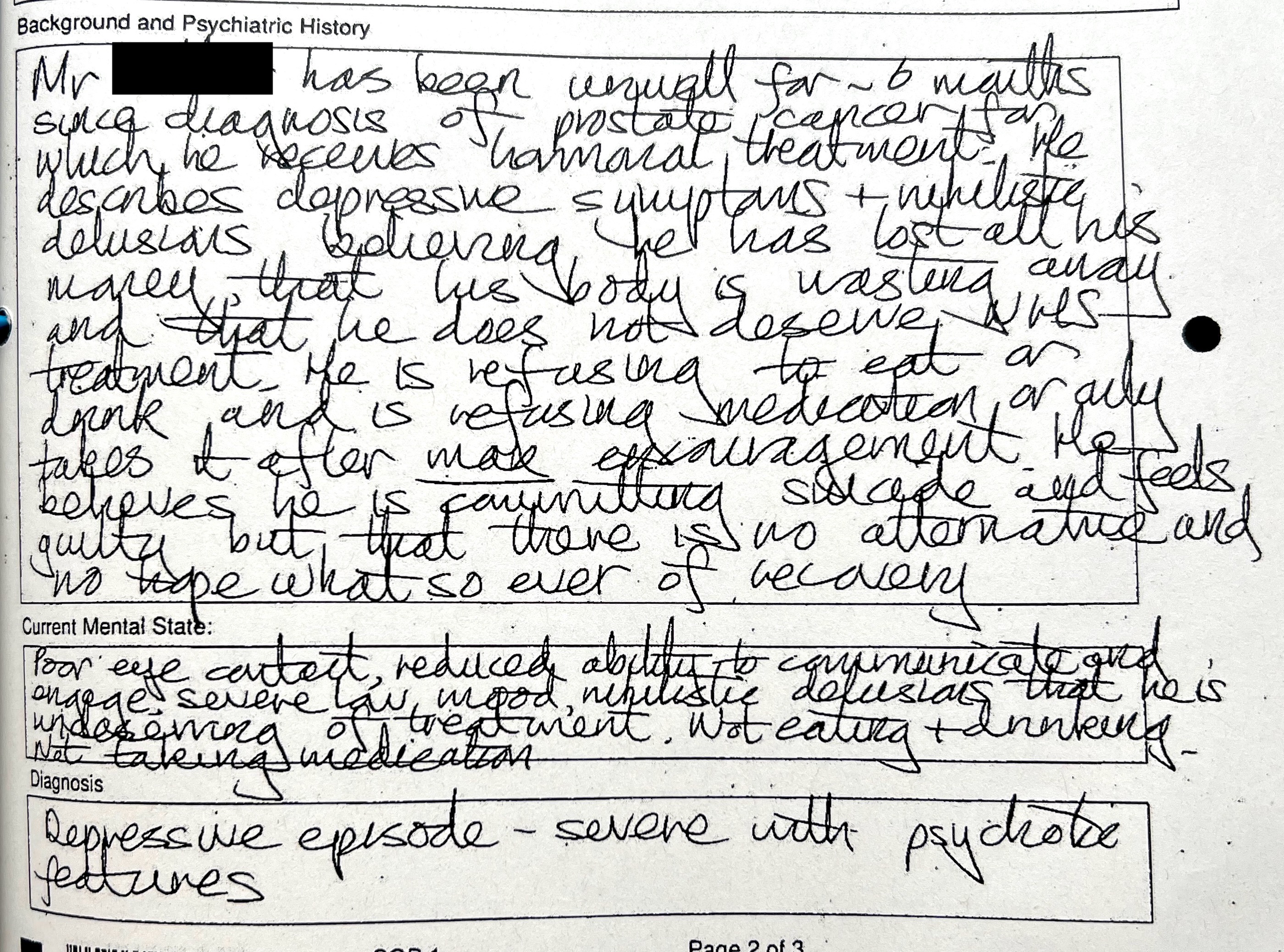
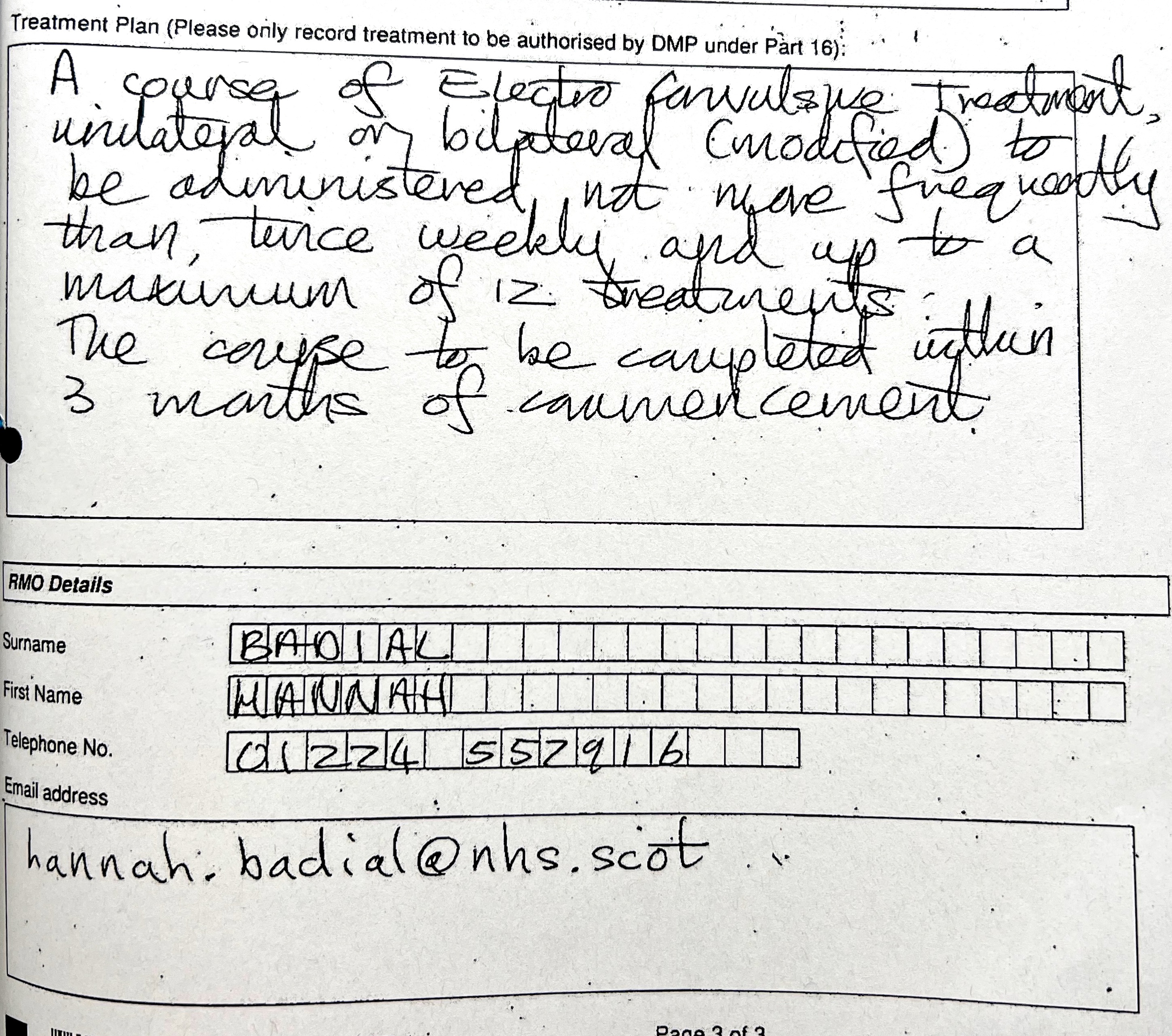
Above is an extract from the form that Dr Hannah Badial submitted to the Mental Welfare Commission for Scotland requesting a second opinion from a Designated Medical Practitioner. Dr David Rooke must have based his opinion on what she told him on the form and at a private Microsoft Teams meeting on 21st December 2021. She told him on the form that 'He is refusing to eat or drink and is refusing medication', and again 'Not eating and drinking and not taking medication'. This was untrue and certainly untrue on 21st December. She also stated on the form that I had been unwell for around 6 months, when in fact it was just over 2 months, and I had only been taking psychiatric medication for 3 weeks. Did she lie to him in the meeting as well as on the form?
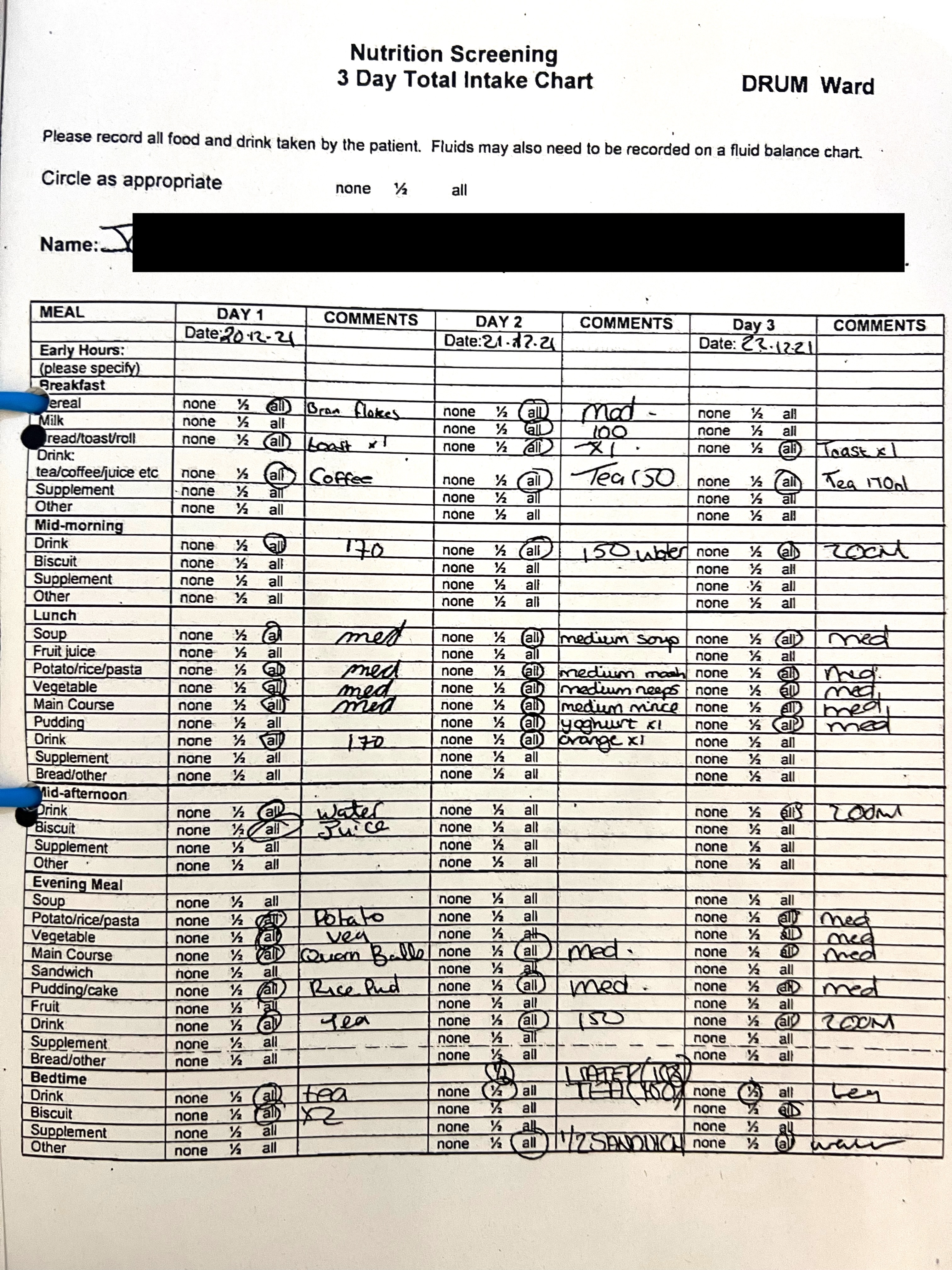
This is the record of my food intake on 21st December 2021, the day when Dr Badial met Dr Rooke on Teams and he signed Form T3A authorising ECT. It shows that far from being reluctant to eat and drink, I went and sat in the dining room with the other patients five times, ate all of my breakfast, had a 3-course lunch, an evening meal, and ate a sandwich before bedtime. I also took all the medication that was given to me.